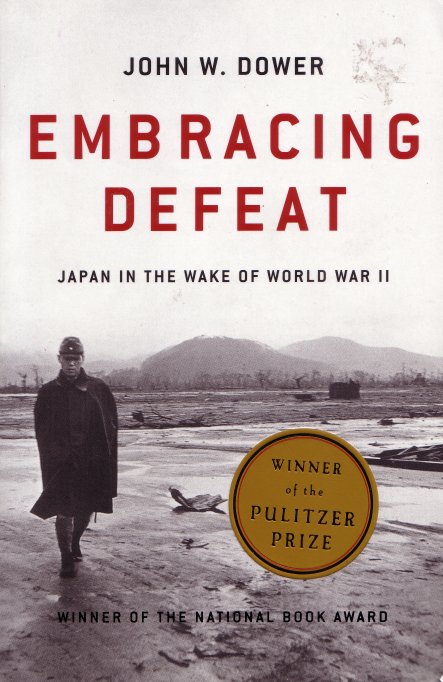
Embracing Defeat

This is a book which deals with the years just after the surrender of Japan in World War II. As with other books, I will point out some of the most interesting things I found in the book.
Apparently a lot of people at the higher levels were more interested in getting rich by plundering military stockpiles than they were interested in helping their own people. There was also a great deal of destruction of files before the Allied occupation forces arrived.
The book is also not very favorable to Emperor Hirohito. In relation to his surrender message, it says “..his task was not merely to call a halt to a lost war, but to do so without disavowing Japan's war aims or acknowledging the nation's atrocities-and in a manner that divorced him from any personal responsibility for these many years of aggression.”
American soldiers were astonished at the degree of destruction in the Japanese cities.
The book says around 2.7 million military personnel and civilians died during the war, which was about 3 or 4% of the country's entire population.
66 major cities had been bombed, destroying 40% of those urban areas. 30% of the population of those areas was homeless.65% of all residential buildings were destroyed in Tokyo. Osaka had 57% of its residential buildings destroyed, and Nagoya had 89%.
The book holds that the military discipline not on any sense of harmony, but on ultra-strict discipline from the top down. This resulted in some of those in higher levels being killed by other soldiers after the war's end. Also, the Japanese public was finding out about the many atrocities the Japanese forces had committed and returning soldiers were not greeted as heroes but as pariahs.
Other groups of people also became pariahs. This included the survivors of the atomic bombings, war orphans and street children, widows, and homeless people. Also servicemen who had been disabled.
The Allied occupation of Japan was from August 1945 through April 1952.
For years later there were still severe food shortages, unemployment, rampant inflation, and a major black market.
There was also a very substantial growth of prostitution when the US soldiers arrived and occupied the country.
School students had to go through their textbooks and mark out passages relating to anything that was militaristic or nationalistic, at least until their new, and modified, textbooks arrived.
More on Hirohito: “Hirohito was also, as it turned out, resilient and malleable, blessed by the Heavens – and by General MacArthur more particularly- to survive and prosper while, all around him, his loyal subjects were denounced, purged charged with war crimes, even executed. The emperor's role in Japan's aggression was never seriously investigated. He was dissuaded by the Americans from acknowledging even moral responsibility for the repression and violence that had been carried out in his name and with his endorsement.
Shortly after the war there seemed not to be any great anti-American hatred among the Japanese, and the atomic bombings were seen as an instrument of war and just another example of the cruelty of war.
It was with the start of the Tokyo War Crimes trials that news of the various massacres carried out by Japanese soldiers first become known to the population at large, and they were quite upset when the found out the extent of those atrocities.
Main Index
Japan main page
Japanese-American Internment Camps index page
Japan and World War II index page
|